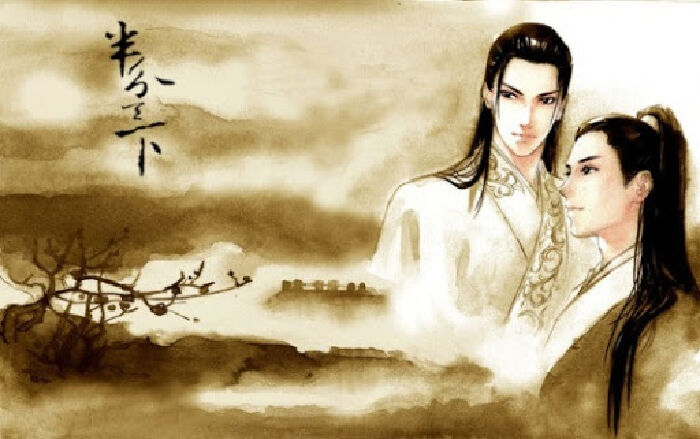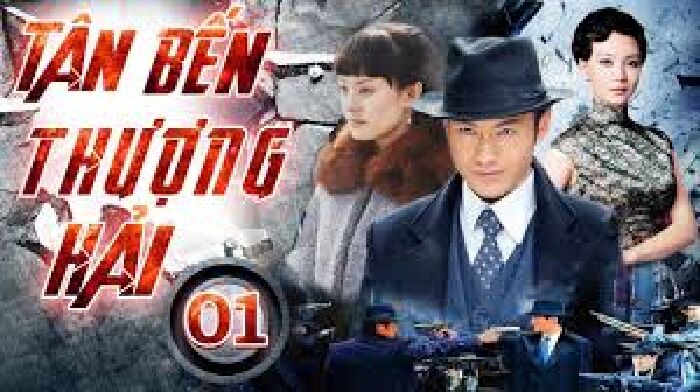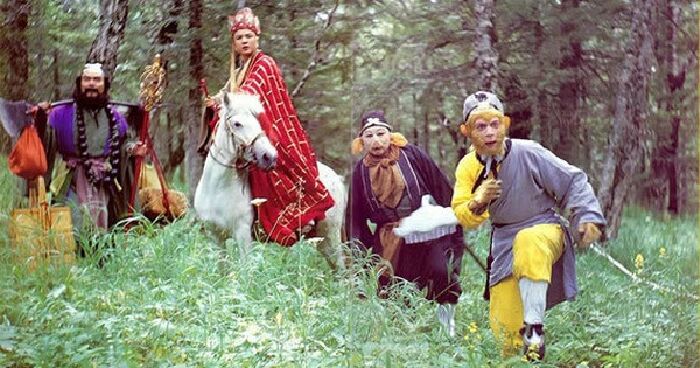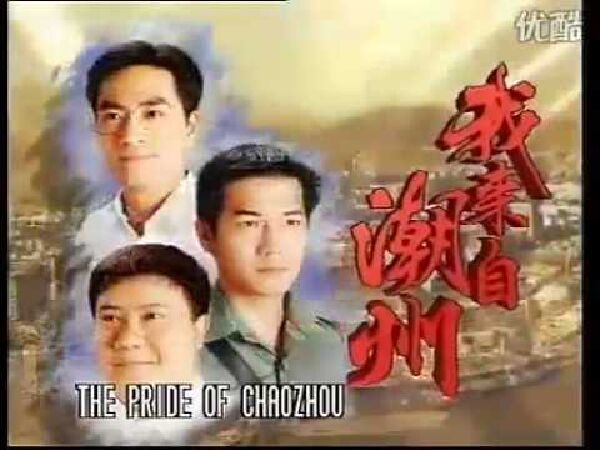Top 10 Immortal Flower Songs
Chinese music with Vietnamese lyrics has long been imported and created its own place in the hearts of the Vietnamese music-loving public. It can be the music from famous movies like Bao Thanh Thien, Journey to the West, .. or songs cleverly put Vietnamese lyrics to create immortal melodies. It is impossible to name all Chinese songs with Vietnamese lyrics, but here we will take a look at the most famous songs representing Chinese music in Vietnam!
1
Say You Will

Performance by Qi Qin
The song Winter Promise, Chinese name is , English version is Say you will, composed by Taiwanese singer and songwriter Qi Qin, has been extremely popular among overseas music lovers in Vietnam. Vietnam in the 90s. The song has a gentle, melodious melody along with the excellent performance of Te Tan himself, which will bring a great experience to the audience.
In 1985, Qi Qin was invited to participate in the movie "Fang Thao Wall of Heaven" (芳草碧連天). Wong Cho Hien, a young Taiwanese actress who has become famous in Hong Kong, is also invited to participate. The two quickly fell in love. The love with Vuong To Hien was the inspiration for Qi Qin to compose many songs, including "Winter Promise", which was composed in just 15 minutes. In 1987, the film was completed, Vuong To Hien returned to Hong Kong to continue developing his career. Qi Qin released the album "Dong Yu" (冬雨), which includes many songs composed during his collaboration with Vuong To Hien, including "Winter Promise". The song quickly became famous, later covered by many singers, including the version by Wang Jie (王杰, Dave Wang), the English version of "Say you will" by the group Tokyo Square. The Vietnamese lyrics of the song also have many versions performed by many singers, most notably "Let's live for youth" by Tuan Ngoc.
2
Can't Let Go

Song of Can't Let Go in the movie Bao Cong.
Dream of a couple of butterflies (roughly translated: Dream of a couple of butterflies), original name of the new couple is a dream (traditional Chinese: 新鴛鴦蝴蝶夢, simplified Chinese: 新鸳鸯蝴蝶梦, pinyin: Xin yuan yang hu die meng) is the name of a Chinese song, performed by singer-songwriter Hoang An. Originally released on February 1, 1993, used as a song in the movie Bao Thanh Thien, along with the success of the film, the song became one of the most successful hits in music history. Chinese language, with sales in Taiwan of 940,000 copies and global sales exceeding 6 million copies.
The song was recorded and released on February 1, 1993, on the album of the same name released by Hoa Tinh Records. The song was later used as the main theme song in the Taiwanese TV series Bao Thanh Thien (1993 - 1994) and the film Thien Long Bat Bo.
After the TV series Bao Thanh Thien aired, the song was widely circulated. The color of Chinese music, the combination of ancient poetry and lyrics of Buddhist origin, makes the song have a unique cultural meaning. The success of Bao Thanh Thien made the famous song become a classic and typical song of Hoang An. Many famous people have also performed this song such as Taiwan's Justice Minister Ma Ying-jeou (later President of Taiwan), Taiwanese sagas such as Phi Ngoc Thanh, Tieu Kinh Dang, Trac Y Dinh, Hong Kong artist Mai Diem Phuong...
Cantonese version with lyrics written by Lin Xi, popular in Hong Kong. The actor who played Zhan Chieu in the Bao Thanh Thien Ha Gia Kinh series also performed this version.
The song has also been adapted into many different language variations. The best known English variations include "Butterfly Dream", "Dream of a Butterfly Couple", or most famously "Can't let go" performed by the Tokyo Square team. The Vietnamese version was written by singer Minh Thuan and performed by singers Minh Thuan and Dan Truong, respectively. There is also another Vietnamese version performed by singers Ly Hai and Ho Quang Hieu.
The song is said to have come from a sudden emotion of musician Hoang An on an October night in 1992. After completing the Chinese-style melody, Hoang An used many other Tang lines of poetry. each other to write the lyrics
3
The Bund

Song of the Bund, the song of Diep Le Nghi
"The Bund" (Chinese: 上海灘; Sino-Vietnamese: Shanghai Than) is the theme song of the popular TV series of the same name - The Bund - produced by Hong Kong's TVB in 1980. Song written by Co Gia Huy, Hoang Triem put Cantonese lyrics, singer Diep Le Nghi (Frances Yip) performed. She sang this song over ten thousand times in more than 30 countries.
One of the classics of the 1980s, "Shanghai Bund" was reused by several Chinese singers and films, for example in 2000 Andy Lau used Mandarin to perform the song through The title "Supreme Shanghai Than" (最愛上海灘) was used as the theme song for the Hong Kong movie New Ben Shanghai.
4
Where Is The Way Please?

The song Please ask for directions through the voice of Chiang Dai Wei
Please ask where is the way, the Chinese name is , this is a famous song with a lot of audiences, especially the children's generation because this is the opening song for the movie Journey to the West. famous and associated with the childhood of many generations of Vietnamese people.
Please ask for directions where was born 30 years ago and is ranked among the most famous Chinese movie soundtracks of all time. Up to now, this song is still performed by many veteran singers in performances or selected as background music at events. In 2001, the song took the lead in a poll of the most favorite Chinese song.
Please ask for directions, because Hua Kinh Thanh composed the music, and Diem Tuc wrote the lyrics. The lyrics are not long, but contain rich content, both praising the bravery of Sun Wukong and depicting the overcoming spirit of the four teachers and students of Tang Tang. In the book "Where to ask for directions" (Jiangsu Literature Publishing House, 2012), director Duong Khiet said that she especially liked the sentence "Spring, summer, autumn and winter, bitter and sweet anise, please ask for directions. anywhere, the road is right under your feet."
5
People From Chaozhou

Song People From Chaozhou
The Man from Chaozhou, or the Chinese name "胜利双手创" (Two Hands to Win) performed by Ye Zhentang is the theme song of the movie of the same name, The Man from Chaozhou, is very familiar to listeners. fake Vietnam. The song has Vietnamese lyrics in many versions, performed by many Vietnamese singers such as Quang Linh, Truong Vu, and Ngoc Son.
The song and film are known for depicting the unique culture of the Tieu people. It was also considered a semi-biographical work about Lim Por-yen (), the owner and CEO of Asia Television at the time - who was a native of Chaozhou, so the series was re-broadcast. after Lam's death.
The opening is the film's setting in Chaozhou, Guangdong in the 40s when China resisted the Japanese and the civil war of the Kuomintang and the Chinese Communist Party.
Trinh Sam is the son of a rich merchant Trinh Thua Tong in Chaozhou. After that, Trinh Sam's father became seriously ill in Hong Kong, and Trinh Sam and his compatriots Chow Yun and Li Nai Cuong went to Hong Kong. Trinh Sam's father died of a serious illness, and the three of them stayed in Hong Kong to make a living. Trinh Sam and his wife Giang Sanh Nhu became a tycoon of the garment industry, Ly Nai Cuong became a famous detective, Chau Nhuan relied on his skills in cooking Chaozhou dishes to become the owner of a corporation dealing in Korean dishes. Chau is famous in Hong Kong.
Suitable for you
14-12-2023 cookie
11-12-2023 cookie
27-11-2023 cookie
27-11-2023 cookie
24-11-2023 cookie





